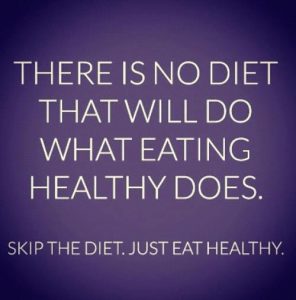 Most of our clients in Irvine, CA, use their trainer and our expertise to find the right diet, if you’re working on your own, it’s not nearly as easy. Before you begin, you need to know what a healthy diet consists of and what your personal goals are. We consider food sensitivities, so should you. No matter how great a specific food is, if it doesn’t agree with you, it shouldn’t be part of your diet. There are some basics for any healthy diet.
Most of our clients in Irvine, CA, use their trainer and our expertise to find the right diet, if you’re working on your own, it’s not nearly as easy. Before you begin, you need to know what a healthy diet consists of and what your personal goals are. We consider food sensitivities, so should you. No matter how great a specific food is, if it doesn’t agree with you, it shouldn’t be part of your diet. There are some basics for any healthy diet.
Ditch the processed and embrace whole foods.
Processed foods have most of the nutrients removed while processing. They also contain chemicals to add to the shelf life of the food. The first change to make is to eliminate processed foods and focus more on whole food. It takes more creativity because you have to prepare the food, but you’ll find there are easy to find recipes online. Make your selection a rainbow of colors. Fruits and vegetables have different nutrients and benefits based on their color, so varying it each meal can help you get them all.
Identify the number of calories you need.
Each person’s calorie needs will be different, based on their present body weight, age, activity levels and goals. If you’re trying to lose weight, eating 3500 calories fewer will shed one pound. The easiest way to calculate your calorie needs is to eat for the weight you want to achieve. For building muscle tissue, make sure you include one gram of protein for every pound of body weight, a half gram of fat and the balance of your calories in carbs. People on a ketogenic diet to lose weight will need to keep carbs under 50 grams a day.
Don’t make your diet so strict or starve yourself.
One of the biggest reasons diets fail is that they’re too strict and have rules that make it impossible to follow. That’s why we focus more on eating healthy, than dieting. Actual dieting doesn’t work. The term, dieting, indicates a short term process and eating “special” food. Eating healthy is how we prefer to help our clients with their dietary needs. Healthy eating doesn’t require a lot of fuss. Choosing to fill your plate with lots of fresh fruits and vegetables and cutting out sugar and processed food is a huge start to controlling calorie intake. You never fall off the diet wagon when you eat healthy, because you’re allowed some “otherwise forbidden” foods occasionally.
- When you want to get the healthiest fresh fruit and vegetables, free from chemicals and pesticides, use the Clean Fifteen list to purchase those grown traditionally and the Dirty Dozen list for those that should be organic.
- While calorie counting isn’t necessary if you’re eating healthy, portion control is. You’re allowed some cake once in a while, but that means a small piece of cake, not the whole cake.
- If your protein source is meat, the way you make it is important. You should grill, broil, bake or boil it, never fry or deep fry it.
- While exercise is very important, you can’t out-exercise a poor diet. Not only will you feel better, it helps you maintain your proper weight and boosts muscle building effort.
